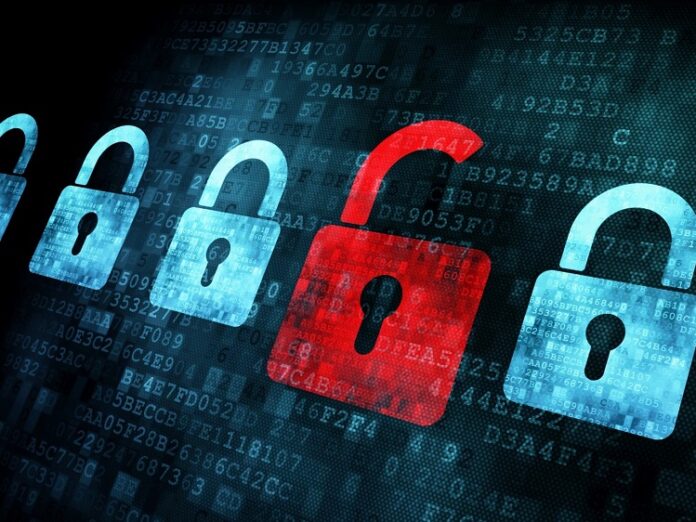By 2025, the world could lose an astounding $10.5 trillion per year to cybercrime. That’s a frightening fact, given the world’s increasing reliance on technology in just about every sector.
Businesses are particularly more at risk of cyber attacks as they are lucrative targets for hackers looking to make money. That’s why cybersecurity for businesses is such a hot topic right now.
Incredibly, up to 77 percent of organizations aren’t prepared for a cyber attack. If you’re among these organizations, it’s time to take action.
A successful cyber attack can devastate your business. 60 percent of small businesses close within six months of a cybercrime.
Thankfully, any business can implement a robust IT security strategy and prevent breaches. In today’s post, we give you nine actionable cybersecurity tips for your business.
- Document Your IT Security Policies
Many small businesses operate by intuitional knowledge and word of mouth. But when it comes to IT security, it is essential that you document your protocols clearly. This way, every member of staff knows what they should be doing to avert cyber-attacks.
If you don’t know where to start, check out relevant online portals for cybersecurity information and training. Some sites even contain helpful toolkits for determining and documenting IT security policies and best practices.
You may also want to partner with a professional IT outsourcing company to help you set practical cybersecurity policies for your business.
- Use Firewalls
A firewall is among the first and most dependable lines of defense against cyber attacks. The firewall acts as a barrier between your business data and attackers.
Besides the standard external firewall, consider installing an internal firewall to provide an extra layer of security. Encourage your remote employees to install firewalls on their home networks as well. You can even provide them with firewall software to boost compliance.
- Don’t Forget About Mobile Devices
The majority of businesses today allow employees to bring and use their own devices for work in the office. In such a case, it’s important that the company creates a security policy governing the use of these devices.
For instance, you can tell staff members to set up regular security updates to keep sensitive business data safe.
- Educate Employees About Your Cybersecurity Policies
A considerable percentage of data breaches are the result of human mistakes. Set aside time to train every employee who will access your business network on IT security best practices. Ensure that every staff member you hire familiarizes themselves with your cybersecurity policies.
Keep in mind that hackers are getting savvier by the day, so you need to regularly update your employees on new security protocols. Hold every employee accountable by having them read and sign a document that says they’ve been clearly informed of your cybersecurity policies. The document should also state what actions the company will take against anyone who flouts these policies.
- Implement Password Best Practices
Weak, stolen, and lost passwords are a major contributing factor to data breaches. That’s why you need to have a password policy in your company. Go a step further to ensure that your password policy is strictly adhered to.
Recommend password managers for your employees. These tools can help generate strong passwords and store them safely for your employees.
- Back up Business Data Regularly
Sure, you can do everything possible to prevent cyber attacks but still fall prey to data breaches. That’s why regular data backup is so important. Some of the files you may want to back up include electronic spreadsheets, processing documents, financial files, databases, accounts payable/receivable, and human resource files.
Ensure that the data you’ve stored on the cloud is also backed up. Regularly check your backed-up data to make sure it’s the latest version and is functioning properly.
- Invest in Anti-Malware Software
Part of your data protection campaign should include investing in a reliable anti-malware program. Many times, malware enters your system through phishing emails. You want to make sure that in case your employees click on these emails by mistake, your network is still secure.
- Always Use Multi-Factor Authentication (MFA)
MFA is one of the simplest and most reliable ways to ensure cybersecurity. The goal is to ensure that someone is who they say they are by requiring them to provide two or more pieces of evidence proving their identity.
Each piece of evidence required by MFA comes from a different category. It may be something they have, know, or have.
MFA protects your data against a potential breach. It keeps an eye on staff accounts and directs hackers away. Even when an employee exposes their login credentials by mistake or forgets them, MFA can protect their accounts.
Recommend that employees use their cell numbers as a second form. This way, they get a notification when someone tries to log in to their account and stop it.
- Consider Segmented and Limited Employee Access
Sometimes, it makes sense to limit employee access to company data and systems. As we’ve already pointed out, some cyber threats originate from inside your company. These internal threats may be posed by both innocent and hostile staff members.
When you maintain tight control over user access, you minimize the amount of potential damage that a compromised account or hostile user can do.
Take Cybersecurity for Businesses Seriously
With cybercrime on the rise, businesses need to be proactive in protecting themselves against attacks. The good news is that you don’t need to spend a lot of money to implement a successful cybersecurity strategy. Adopting the tips we’ve shared in this post can help ward off attackers and keep your data safe.
Would you like to read more great content on cybersecurity for businesses? Please, keep visiting our blog.


